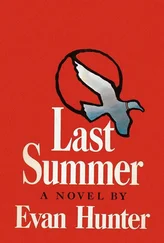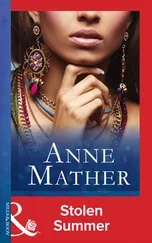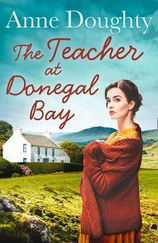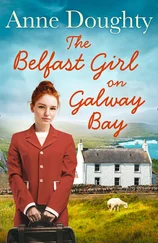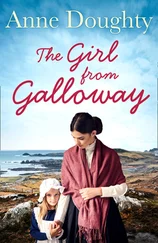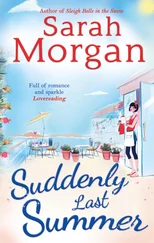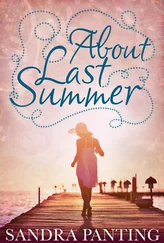And indeed, the slope where my stones rested in the shade of the old thorns was as special to my father as it was to me. He had little cause to go there, there being no grass to mow and no shrubs to prune, but he had done one thing that left me in no doubt at all about his feelings. He had named the dwelling he had long dreamed of building ‘Anacarrig’, and in the tongue of the olden days, ‘Anacarrig’ is ‘the small marsh of the stones’.
3
On the night Mother died, I phoned my dear friend Joan to tell her the news. Joan lives in the ground floor flat below us – a sturdy, silver-haired lady who has lived through eight decades, but only owns up to the fact on rare occasions because she says people treat you as if you have lost your wits if they find out you are over eighty. And Joan is most certainly in full possession of hers. She is more shrewd and wise in her judgement of people and what happens to them than anyone I have ever known.
Matthew and I carried down all our houseplants for her to look after while we were away. We found her waiting for us by her door, a freshly opened bottle of whiskey in her hand.
‘Drink up, my dears, it’ll help you sleep,’ she insisted, pouring generous measures for us both. ‘The most important thing to do in the face of death is to celebrate life,’ she pronounced, as she eased her stiff limbs into her special upright armchair. ‘You must be willing to accept how you feel. There’s no use pretending you’re coping if you’re not. If misery is inevitable, relax and get on with it. It will pass. All things pass, however ghastly.’
With her strong voice and Cheltenham Ladies’ College accent, Joan could strike you as quite overbearing when she holds forth, but I had long ago grasped the true character of what lay behind the briskness of manner. Joan’s life had been full of difficulties and her struggles had left their mark, but she was a musician of great talent and when she played for you she revealed herself, a woman of deep sensitivity and compassion.
‘You’ll ring me, won’t you, Deirdre, if I can be any use whatever. Going through your mother’s things won’t be easy. You never know what’s going to come upon you, my dear, especially if it’s someone close. Things you’ve forgotten, or things you never knew, just pop up. You may find it very trying, especially as you’ll be on your own,’ she said firmly, as we stepped out into the hallway and said our goodbyes.
A week later, four hundred miles away, kneeling on a pink bedroom carpet, tears trickling down my face, I heard her words echo in my ears and longed for the comfort of her overcrowded sitting room and the hiss and bubble of its antiquated gas fire.
Armagh Gazette , it said, in Gothic script on the paper bag I held in my hands. ‘Newspaper and General Printing Offices, Office Requisites and Stationery Stockists, Largest stock of books in the City.’
At the bottom of the deepest drawer in Mother’s dressing table, hidden underneath a leather handbag full of receipts and the spare parts for her heated rollers, I’d found this paper bag: it contained two unused hardbacked notebooks. I had bought them with my prize money from the ‘Living in Armagh’ essay competition. The same paper bag the assistant slid them into, fresh and shiny as the day I bought them.
I wiped my eyes crossly and counted on my fingers. Yes, 1969. That would have been it. The Easter holiday before my A level. I could almost feel the chill of the early April day when I cycled into Armagh to see what I could find to spend my prize money on. I went into the Gazette office and at first I just couldn’t make up my mind. I was so confused by the array of exercise books, notebooks, files and folders laid out on the broad counters, I turned away and went and looked at the books instead.
I walked up and down the tall display cases where I had spent my tokens and chosen my prizes since I was old enough to read. And then, on a counter right at the furthest end of the shop, I saw the pile of blue notebooks. ‘Challenge’, they said, in gold lettering on the spine.
‘That’s what I want,’ I said out loud, and a woman buying paper doilies stared at me, as I pounced on one of them to find out how much they were. To my delight the prize money would pay for two.
My joy was unbounded. Those two shiny notebooks, full of smooth, unwritten pages, were a hope and a dream. I had such plans for filling all the space they offered me. As I cycled back to Anacarrig with the blustering east wind behind me, my jacket billowing, thinking of what I might write in them, my spirits soared so high that I felt I might take off into the dazzling sky and make a circuit of the city.
‘What kept you?’
I could see the anger in her face, because she thought I’d been gone too long. Then came the inquisition as to where I’d been, who I’d met. She hadn’t believed me when I said I’d just been looking at books and buying some notebooks.
‘Not surprising they disappeared, is it?’ I said to the empty room, as I wiped my eyes again. ‘That was in another country and besides the wench is dead.’ She was hardly a wench, but she was certainly dead.
Joan was right. You really couldn’t guess what was going to jump up and hit you and there was no use pretending it didn’t hurt. Here in my hands I held a dream that had been taken away, not just by the loss of my precious notebooks which I couldn’t afford to replace, but by all the pressures and obliqueness a mother can bring to bear on a daughter.
If I were being charitable I might try to justify her action by saying she was simply ensuring I had no possible distraction from my work for A level. But the facts wouldn’t support me even if I tried, for no matter what I wrote, she always found a way of suggesting that my writing, like my reading, was a self-indulgent activity even when school and exams were long behind me. It could have no value whatever, because she could never see any connection between it and earning my living.
‘Have a bit of sense, Deirdre. When did reading a book ever pay an electric bill? Tell me that? An’ where would you’n Sandy be today if I’d sat on my backside and scribbled at stories or read books?’
I put the notebooks down where my dripping tears could not spatter the bright covers and hunted in the pockets of my jeans for a hanky. There wasn’t one, only a screwed up pink tissue with a lipstick print on it. I unfolded it meticulously, wiped my eyes and blew my nose.
Then, suddenly, I heard my own voice echo in the empty room, a voice I barely recognised. Strong and firm, with no trace of tears or the choke I could still feel in my throat, it said: ‘So what are you going to do now, Deirdre Weston? You’ve got your notebooks back. You’ve got a life of your own. There’s no one to stop you now. What about it?’
I hadn’t got an answer, but I got to my feet, picked them up and carried them along the landing to the table in my own room. As I set them down, I nodded reassuringly to the golden eye of the kingcup I’d brought up from the small marsh of the stones. Something would come to help me.
4
I still don’t know what possessed me, whether I was overconfident, or curious, or prompted by some inner need I couldn’t explain, but on the Sunday morning after the funeral, I decided to do what I hadn’t done since I’d packed my bags and left home for good. I rang Mr Neill, our one and only Protestant neighbour and asked for a lift to church.
The short journey into the city was no problem. It was a beautiful sunny morning, the light spilling through the newly-leafed trees. William Neill is a retired farmer who knew my father well. He talked about the weather and the sudden surge of growth in the fields and gardens in just the way my father would have done. It was as we drove down the Mall, I realised I should never have come. It was seeing Mother’s parking space that did it.
Читать дальше
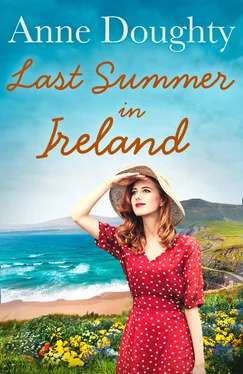
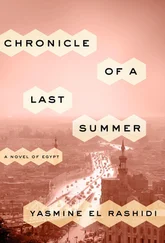
![Маргарет Миллар - Rose's Last Summer [= The Lively Corpse]](/books/384369/margaret-millar-rose-s-last-summer-the-lively-c-thumb.webp)
